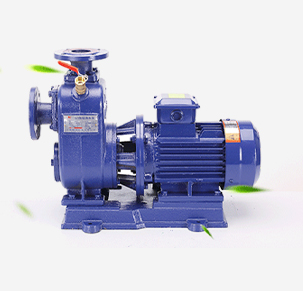English
- Afrikaans
- Albanian
- Amharic
- Arabic
- Armenian
- Azerbaijani
- Basque
- Belarusian
- Bengali
- Bosnian
- Bulgarian
- Catalan
- Cebuano
- Corsican
- Croatian
- Czech
- Danish
- Dutch
- English
- Esperanto
- Estonian
- Finnish
- French
- Frisian
- Galician
- Georgian
- German
- Greek
- Gujarati
- Haitian Creole
- hausa
- hawaiian
- Hebrew
- Hindi
- Miao
- Hungarian
- Icelandic
- igbo
- Indonesian
- irish
- Italian
- Japanese
- Javanese
- Kannada
- kazakh
- Khmer
- Rwandese
- Korean
- Kurdish
- Kyrgyz
- Lao
- Latin
- Latvian
- Lithuanian
- Luxembourgish
- Macedonian
- Malgashi
- Malay
- Malayalam
- Maltese
- Maori
- Marathi
- Mongolian
- Myanmar
- Nepali
- Norwegian
- Norwegian
- Occitan
- Pashto
- Persian
- Polish
- Portuguese
- Punjabi
- Romanian
- Russian
- Samoan
- Scottish Gaelic
- Serbian
- Sesotho
- Shona
- Sindhi
- Sinhala
- Slovak
- Slovenian
- Somali
- Spanish
- Sundanese
- Swahili
- Swedish
- Tagalog
- Tajik
- Tamil
- Tatar
- Telugu
- Thai
- Turkish
- Turkmen
- Ukrainian
- Urdu
- Uighur
- Uzbek
- Vietnamese
- Welsh
- Bantu
- Yiddish
- Yoruba
- Zulu
Telephone: +86 13120555503
Email: frank@cypump.com
Nov . 24, 2024 03:09 Back to list
slurry pumps vertical
Understanding Vertical Slurry Pumps Essential for Efficient Handling of Slurry
Slurry pumps play a crucial role in various industries, including mining, construction, and wastewater treatment, where the transportation of thick, viscous mixtures is necessary. Among the different types of slurry pumps, vertical slurry pumps have gained popularity due to their unique design features and operational efficiencies. This article explores the key aspects of vertical slurry pumps, including their construction, advantages, applications, and maintenance.
Construction and Design Features
Vertical slurry pumps are designed to handle abrasive and corrosive slurry materials with high solid content. The pump typically consists of a vertical shaft connected to an impeller at the bottom, submerged in the slurry. This configuration allows the pump to efficiently transfer the slurry to the surface while minimizing space requirements. The vertical design makes these pumps particularly suited for applications where horizontal space is limited.
One of the defining characteristics of vertical slurry pumps is their bearing and shaft arrangement. Since the pump is often submerged, it is designed to contain durable bearings that can withstand the harsh conditions required for handling slurries. Additionally, the materials used for the impeller and casing are typically chosen to resist wear and corrosion, ensuring a longer service life.
Advantages of Vertical Slurry Pumps
Vertical slurry pumps offer several advantages over their horizontal counterparts. One of the most significant benefits is their ability to handle high slurry concentrations, making them ideal for applications where dense mixtures are common. The vertical orientation allows for better solids handling, reducing the risk of clogging and enabling the pump to operate efficiently even with a high percentage of solids.
Another advantage is their energy efficiency. Vertical slurry pumps are designed to operate effectively with low energy consumption, which translates to lower operational costs. Their compact size also contributes to space-saving benefits, allowing for easier integration into existing systems and infrastructure.
Furthermore, vertical slurry pumps require less maintenance compared to other pump types. Their simple design means fewer moving parts, which leads to reduced wear and tear. Regular maintenance can be handled with ease, ensuring prolonged operational life.
slurry pumps vertical

Applications in Various Industries
The versatility of vertical slurry pumps allows them to be utilized across a wide range of applications. In the mining industry, they are commonly used for transporting tailings and concentrating slurries. Their ability to handle high solid content makes them invaluable in extracting minerals while managing waste effectively.
In wastewater treatment, vertical slurry pumps are essential for transferring sludge and dewatering processes. They are capable of transporting corrosive and abrasive fluids, making them ideal for dealing with sewage and industrial waste.
Additionally, in construction and civil engineering, these pumps are employed to manage slurry during drilling and excavation activities. Their efficient handling of slurry enables construction projects to progress smoothly, minimizing delays caused by equipment malfunctions or clogging.
Maintenance and Best Practices
To ensure optimal performance, regular maintenance of vertical slurry pumps is critical. Companies should implement a routine inspection schedule to check for wear on the impeller and other components. Ensuring that the seals are intact will help avoid contamination of the pump’s motor and maintain operational integrity.
It is also advisable to monitor operating conditions such as flow rate and temperature. Any irregularities can indicate potential issues that need addressing before they escalate into significant problems. Training operators to recognize the signs of wear or malfunction can also prolong the life of the pump.
Conclusion
Vertical slurry pumps are an integral part of several industries, providing efficient and reliable transportation of slurry materials. Their design advantages make them suitable for handling demanding applications where other pumps may struggle. By understanding their functionality, advantages, and maintenance needs, industries can harness the full potential of vertical slurry pumps for improved operations.
-
Heavy-Duty Mining Sludge Pumps - Wear-Resistant Slurry Handling
NewsAug.02,2025
-
Horizontal Split Case Pump with GPT-4 Turbo | High Efficiency
NewsAug.01,2025
-
ISG Series Pipeline Pump - Chi Yuan Pumps | High Efficiency, Durable Design
NewsAug.01,2025
-
Advanced Flue Gas Desulfurization Pump with GPT-4 Turbo | Durable & Efficient
NewsJul.31,2025
-
ISG Series Vertical Pipeline Pump - Chi Yuan Pumps | Advanced Hydraulic Design&Durable Construction
NewsJul.31,2025
-
ISG Series Vertical Pipeline Pump - Chi Yuan Pumps | Energy Efficient & Low Noise
NewsJul.31,2025










